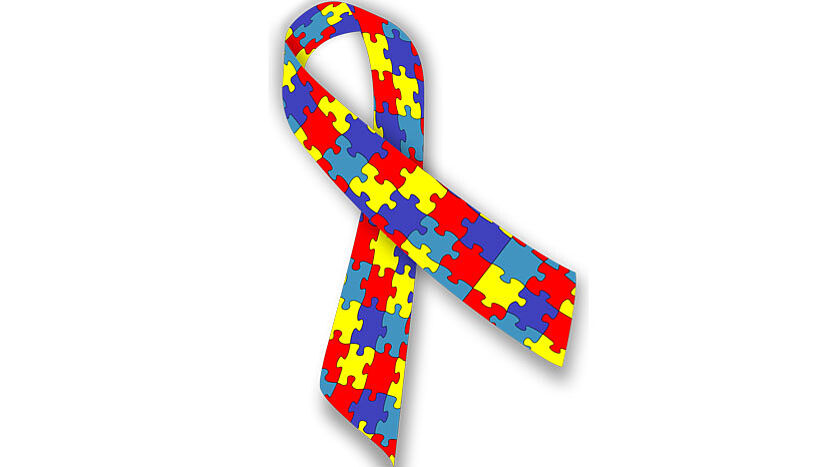Autistic and non-autistic people make similar moral judgements
29. März 2016
The puzzle ribbon is an often used symbol for the autism spectrum, as it represents the diversity of conditions and people within it (Copyright: MesserWoland/WikimediaCommons/ http://bit.ly/1SiOk3s).
Despite prevalent myths in public about autism about their lack of empathic concern for others and propensity for condoning harmful behavior, so far the relation between their empathic capacity and moral evaluations remains sparsely studied. New research shows that the seemingly callous attitudes in autism are not a feature of autism per se but are due to an understudied aspect of their personality called alexithymia, which is characterized by emotional processing difficulties. An Austrian-Italian research team led by Giorgia Silani from the University of Vienna and Indrajeet Patil from SISSA Trieste has now published these results in the scientific journal "Scientific Reports".
Autistic individuals have been frequently referred as lacking of empathy, with no or little concern for others’ feelings, to the extent that a faction of media has tried to expose the role of possible autistic personalities behind extremely violent behaviors. This has led to stigmatization of this group with the public perception that autistic individuals can be cold, with no or little moral sense.
The new study utilized well-known moral dilemma task which features hypothetical situations where the act of sacrificing a human life is necessary to reduce the overall harm (e.g., killing one person to save five other people) and asked autistic and healthy adults to provide their moral evaluations. The results showed that these two groups did not differ in their moral judgments and severely condemned actions that required them to personally kill someone for the greater good. "The interesting result from our point of view," says Giorgia Silani, "was not that they provided similar judgments, it was why they did so."
Using advanced statistical modelling techniques, the authors could show that there are two different facets of autistic personality that have opposite tendencies which cancel each other out. One is autism itself, which is associated with increased self-oriented distress that impels them to withdraw from stressful social situations and thereby is associated with refusal to engage in harmful behavior even if this leads to overall better outcome. The other understudied aspect of autistic personality is alexithymia, which is associated with reduced empathy and thereby is associated with a tendency to engage in harmful behavior with utility-maximizing outcome. "It’s like these two subdimensions of autistic personality are sitting on a seesaw and are exerting oppositely directed forces and the final moral judgment autistics deliver depends on the balance between these two players," says Indrajeet Patil.
This work also highlights the importance of controlling for effects of alexithymia while studying moral judgments in other clinical disorders, like Multiple Sclerosis, Parkinson’s disease, etc., which are known to have high levels of alexithymia. Without this, such disorders can be attributed moral or emotional impairments that are not endemic to them but actually stem from co-occurring alexithymia.
Publication in "Scientific Reports"
Patil, I., Melsbach, J., Hennig-Fast, K., & Silani, G. (2016). Divergent roles of autistic and alexithymic traits in utilitarian moral judgments in adults with autism. Scientific Reports, 6:23637. Published online 29 March 2016
DOI 10.1038/srep23637
Wissenschaftlicher Kontakt
Assoz. Prof. Giorgia Silani
Klinische Psychologie und Gesundheitspsychologie; Institut für Angewandte Psychologie: Gesundheit, Entwicklung und FörderungUniversität Wien
1010 - Wien, Liebiggasse 5
+43-1-4277-472 23
giorgia.silani@univie.ac.at
Rückfragehinweis
Mag. Alexandra Frey
Media Relations ManagerUniversität Wien
1010 - Wien, Universitätsring 1
+43-1-4277-17533
+43-664-8175675
alexandra.frey@univie.ac.at
